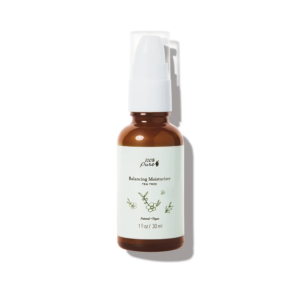Revitalizing Oily and Acne-Prone Skin

Dealing with oily and acne-prone skin can be a challenging journey. However, with the right skincare routine, you can effectively combat these issues and achieve a clearer, more balanced complexion. One powerful ingredient that has gained popularity for its effectiveness in treating such concerns is salicylic acid. In this blog post, we will explore the benefits of salicylic acid for oily and acne-prone skin, discuss the importance of choosing the right face wash, and shed light on the role of hyaluronic acid in acne management.
Understanding Salicylic Acid: A Savior for Oily and Acne-Prone Skin
Salicylic acid, derived from willow bark, is a beta-hydroxy acid renowned for its exfoliating and anti-inflammatory properties. When incorporated into your skincare routine, it can help clear clogged pores, reduce excess oil production, and promote a healthier complexion.
The Power of Exfoliation
Salicylic acid works by penetrating deep into the pores, dissolving sebum and other impurities that contribute to acne formation. This exfoliating action helps remove dead skin cells, unclog pores, and reduce the occurrence of whiteheads and blackheads. By eliminating these acne culprits, salicylic acid helps pave the way for a clearer, smoother complexion.
Reducing Oiliness
Excess oil production is a common characteristic of oily and acne-prone skin. Salicylic acid acts as an oil-soluble substance, effectively dissolving excess oil on the skin’s surface. By regulating sebum production, this ingredient helps control shine, minimize greasiness, and prevent pore blockage, leading to a reduction in acne breakouts.
Calming Inflammation
Acne often involves inflammation, resulting in redness, swelling, and discomfort. Salicylic acid possesses anti-inflammatory properties that help soothe irritated skin. By reducing inflammation, it aids in the healing process and contributes to an overall improvement in the appearance of acne.
Choosing the Right Face Wash for Oily Skin: Harnessing the Power of Salicylic Acid
When it comes to tackling oily and acne-prone skin, using a face wash formulated with salicylic acid can make a significant difference. Here’s why:
Deep Cleansing Action
A face wash containing salicylic acid offers a deep-cleansing effect, effectively removing dirt, excess oil, and impurities that can clog pores. This helps prevent breakouts and allows other skincare products to penetrate more effectively.
Exfoliation and Unclogging Pores
The exfoliating properties of salicylic acid in a face wash aid in removing dead skin cells, which, if left untreated, can accumulate and contribute to acne formation. By unclogging pores, this ingredient promotes a clearer complexion and prevents future breakouts.
Oil Control
Face washes containing salicylic acid are often designed to regulate sebum production, addressing oily skin concerns. By reducing excess oil, these cleansers help maintain a balanced complexion and minimize the likelihood of acne breakouts.
The Role of Hyaluronic Acid in Acne Management
Hyaluronic acid, commonly known for its hydrating properties, plays a vital role in acne management. While it may seem counterintuitive to use a moisturizing ingredient on oily and acne-prone skin, hyaluronic acid offers several benefits:
Balancing Moisture Levels
Acne treatments, including salicylic acid, can sometimes strip the skin of its natural moisture. Hyaluronic acid helps counteract this by attracting and retaining water, providing hydration without adding excess oiliness. By balancing moisture levels, hyaluronic acid ensures that the skin remains adequately hydrated, promoting a healthier and more resilient complexion.
Supporting Skin Healing
Acne breakouts can often leave behind marks and scars, making the skin’s healing process crucial. Hyaluronic acid aids in skin repair by enhancing moisture retention, which contributes to the overall healing of acne lesions. By supporting the skin’s natural regeneration and repair processes, hyaluronic acid helps fade acne marks and promotes a smoother skin texture.

In conclusion, incorporating salicylic acid into your skincare routine can work wonders for clearing and balancing oily and acne-prone skin. Its exfoliating and anti-inflammatory properties help combat acne by unclogging pores, reducing excess oil production, and calming inflammation. When choosing a face wash, opt for one that contains salicylic acid to maximize its benefits. Additionally, don’t overlook the importance of hyaluronic acid in acne management. Its moisturizing and healing properties can help maintain hydration, support skin repair, and improve the overall appearance of acne-prone skin.
Remember, consistent and gentle skincare practices, along with the right ingredients like salicylic acid and hyaluronic acid, can significantly contribute to achieving a clearer and healthier complexion. Embrace a skincare routine tailored to your specific needs, and consult with a dermatologist if you have any persistent skin concerns. With dedication and the power of these effective ingredients, you can confidently take control of your oily and acne-prone skin journey.




